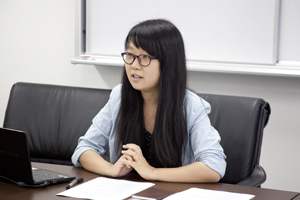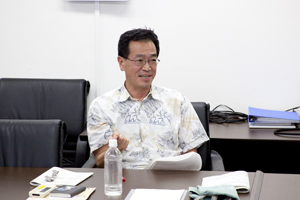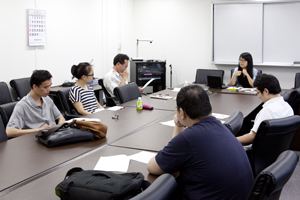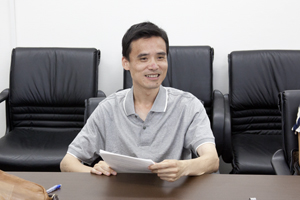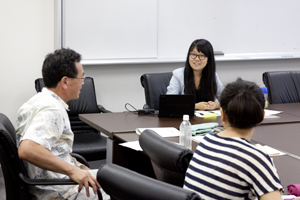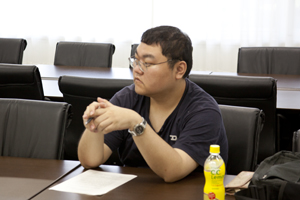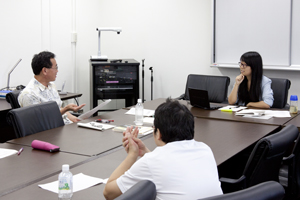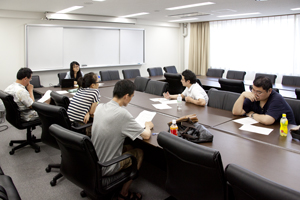News
東文研セミナー「中日親属容隠法の変遷の比較研究」が開催されました
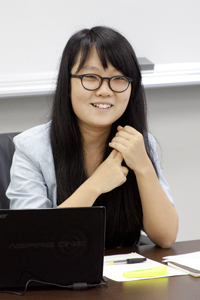
講演者:楊 怡悦
中国政法大学・法学院・博士課程、東京大学・東洋文化研究所・訪問研究員
日時:2013年7月11日(木)午後1時から3時
場所:東京大学・東洋文化研究所・3階・第一会議室
参加者:報告者を除いて5名
言語:中国語
担当:高見澤
題目:中日親属容隠法の変遷の比較研究
講演内容(討論内容を含む):
&emps;親族容隠とは、家族構成員の犯罪行為を隠してかばう行為であり、これを赦し、また、家族の義務とするような定めが、前近代の中国及び日本の法には見られる。近代刑事法典編纂の時期にも、中国や日本の刑事法典やその草案に親族容隠的な規定が見られるが、これらは、伝統的な親族容隠とは異なる。この変遷を見ることにより、時代による家族観の変化及び中国と日本との家族観の異同を観察することができる。
前近代の親族容隠とは、義務的であり、儒家思想のもとの家長主義的制度である。これに比して中国・日本の近代刑事法に見られるのは、家族をかばう者への寛容の姿勢であって、かばうことが義務とはなっていない。そこに見られるのは、個人主義的、自由主義的な発想の萌芽を内包する家族像である。中華人民共和国においては、2012年の刑事訴訟法が親族の犯罪行為について証言を拒むことを定めるまでは、家族といえども、他人の犯罪行為と同じく、明らかにすることを求める絶対的な平等がとられ、親族間の伝統的な倫理観を無視していた。
日本は、中国と相似の法的伝統を有しつつも、近代法典編纂にはより早く対処した。親族容隠を伝統的義務から近代的寛容へとより早く転換させた。この点から見ると、日本における家族は中国とは異なることが背景となっていると見ることが可能である。
中国にける「忠」は、家族における「孝」の類推であるが、日本における「忠」は「孝」の延長とは別のものである可能性がある。
Title: Comparison between the Developments of Institution of Concealment in Chin Japan
Lecturer: YANG, Yiyue, China University of Political Science and Law, Visiting Fellow of Institute for Advanced Studies on Asia
Date: 11/July/2013
Time and Place: 1pm~3pm at the Meeting Room 1, 3rd floor of the Institute for Advanced Studies on Asia, the University of Tokyo
Participants: 5
Language: Chinese
Hosted by Regular Research Project of An Attempt at the Integration of Studies in the Traditional, Modern and Contemporary Chinese Legal System (Prof. TAKAMIZAWA, Osamu, Institute for Advanced Studies on Asia, the University of Tokyo)
Report:
Concealment has quite broad meaning in social life, but in the domain of pre-modern Chinese law, it refers to certain conduct that family members conceal the crime of each other. This kind of rule appeared not only in the codes of pre-modern China, but also in the codes of pre-modern Japan. In the modern times, under the influence of western legal theory, concealment was also prescribed in Japanese and Chinese codes or their drafts. But this model of concealment was significantly distinct to the pre-modern ones, and reflects completely different legal conceptions. From the comparison between vicissitudes of Concealment system in Japanese and Chinese law, diverse ideas of family and community can be found.
Generally speaking, what implicated in obligation model of concealment in pre-modern China and Japan is a kind of Paternalism under Confucianism. The immunity model of concealment in modern Japan and modern China takes an attitude of tolerance. It didn’t prescribe concealment as an obligation, but reserved liberty of how to conduct for the individuals. In P. R. China, concealment was forbidden until 2012, which showed absolute Egalitarian. It ignores special ethical demands among relatives.
Japan used to have analogous tradition of Concealment system to China, but it successfully combined traditional Japanese legal spirit with the adoption of western law in modern times. What we should focus on is that, in pre-modern Japanese concept of family, there was something distinct from China. In pre-modern China, under the influence of Confucianism, relationship between subjects and political authority was the analogue of relationship between family members. Loyalism in China could be inferred from filial piety. However, there is no obvious evidence demonstrates that there was a similar analogy in pre-modern Japan.
|
|
|
|
|
|
|
|
|
|
登録種別:研究活動記録
登録日時:Wed Jul 17 18:07:54 2013
登録者 :高見澤・野久保(撮影)・藤岡
掲載期間:20130711 - 20131011
当日期間:20130711 - 20130711

